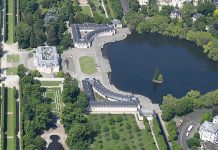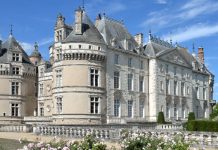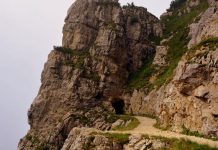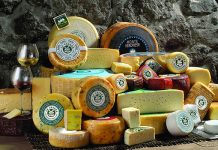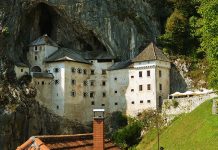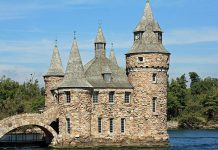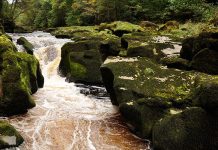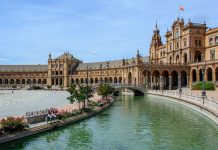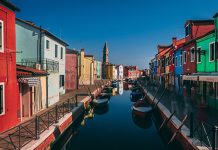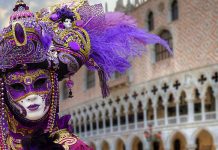Bojnice Castle is an ancient building located on a hill overlooking the city of Bojnice in Slovakia. Its current appearance was formed quite recently, at the beginning of the twentieth century.


Photo: Kurt Bauschardt/flickr (https://creativecommons.org/licenses/by-sa/2.0/)

Photo: Kurt Bauschardt/flickr (https://creativecommons.org/licenses/by-sa/2.0/)
History of Bojnice Castle
The first mention of the castle dates back to 1113. The wooden structure was part of the Zobor Abbey. Little by little, the wooden buildings were changed to stone ones.

Photo: Kurt Bauschardt/flickr (https://creativecommons.org/licenses/by-sa/2.0/)

Photo: Dushan Hanuska/flickr (https://creativecommons.org/licenses/by-sa/2.0/)
In the early 1300s, the Hungarian king Wenceslas III gave the castle to the Slovak ruler Matus Csak, who became its first owner. Years passed, the owners of the building changed, and each of them completed or rebuilt something. Over time, the former fortress turned into a Renaissance castle.

Photo: Guillaume Speurt/flickr (https://creativecommons.org/licenses/by-sa/2.0/)

Photo: Kurt Bauschardt/flickr (https://creativecommons.org/licenses/by-sa/2.0/)

Photo: Dushan Hanuska/flickr (https://creativecommons.org/licenses/by-sa/2.0/)
In the middle of the 17th century, the Palfi family became the owner of the castle, who also rebuilt it. The main changes to the appearance were made by Janos Pálffy, who seriously rebuilt the Bojnice Castle. From a stone fortress, a castle was made in the French style, reminiscent of the castles of the Loire. Why was this done? Jan Palffy was in love with a French aristocrat. She agreed to marry him if the castle looked like her home. And the process of capital reconstruction of the castle began. The work took over twenty years. The French aristocrat has long been married to another, and Jan remained a bachelor. He died in 1908, never seeing his reconstruction ended. According to the will, he was to be buried in the basement of the castle, and a museum was to be located in the castle building.

Photo: Kurt Bauschardt/flickr (https://creativecommons.org/licenses/by-sa/2.0/)

Photo: Kurt Bauschardt/flickr (https://creativecommons.org/licenses/by-sa/2.0/)

Photo: Kurt Bauschardt/flickr (https://creativecommons.org/licenses/by-sa/2.0/)
Now the Bojnice Castle houses a branch of the Slovak National Museum. It has perfectly preserved rooms with unique decoration. The Golden Hall deserves special attention. Its gilded ceiling is carved from juniper wood.

Photo: Kurt Bauschardt/flickr (https://creativecommons.org/licenses/by-sa/2.0/)

Photo: Kurt Bauschardt/flickr (https://creativecommons.org/licenses/by-sa/2.0/)
There is also an art gallery displaying works of the 16th-19th centuries.
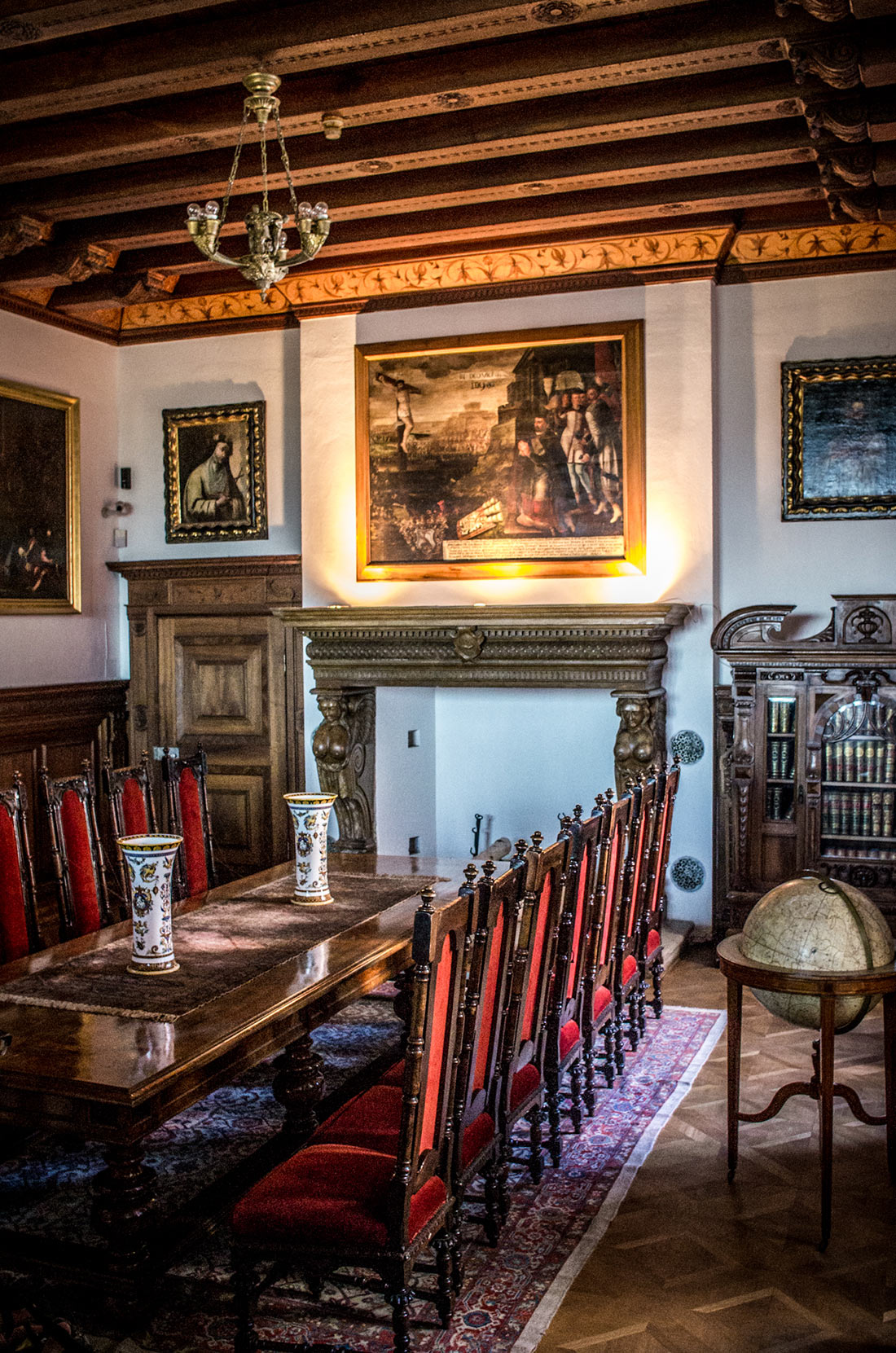
Photo: Kurt Bauschardt/flickr (https://creativecommons.org/licenses/by-sa/2.0/)
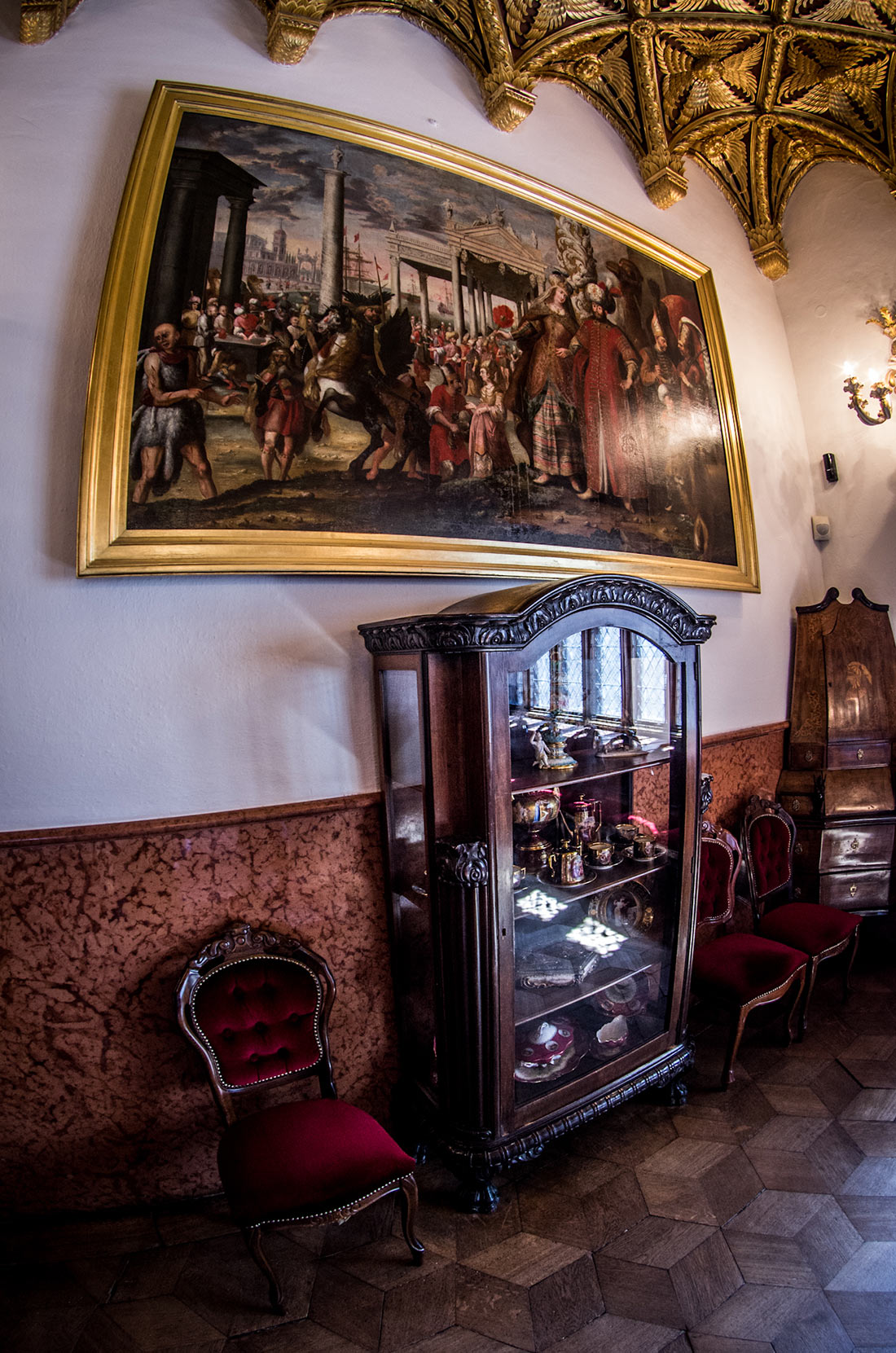
Photo: Kurt Bauschardt/flickr (https://creativecommons.org/licenses/by-sa/2.0/)
The most valuable object on the territory of the castle complex is the late Gothic altar, created by the Florentine artist Nardo di Cione in the middle of the 14th century.


It’s quite difficult find a castle without a park. Bojnice Castle has it as well, but not a very big one. The main attraction of this park is the 700-year-old lime tree, under which King Matthias signed his decrees. It’s called the linden of King Matthias.

Martin Hlauka (Pescan), via Wikimedia Commons (Used with permission)
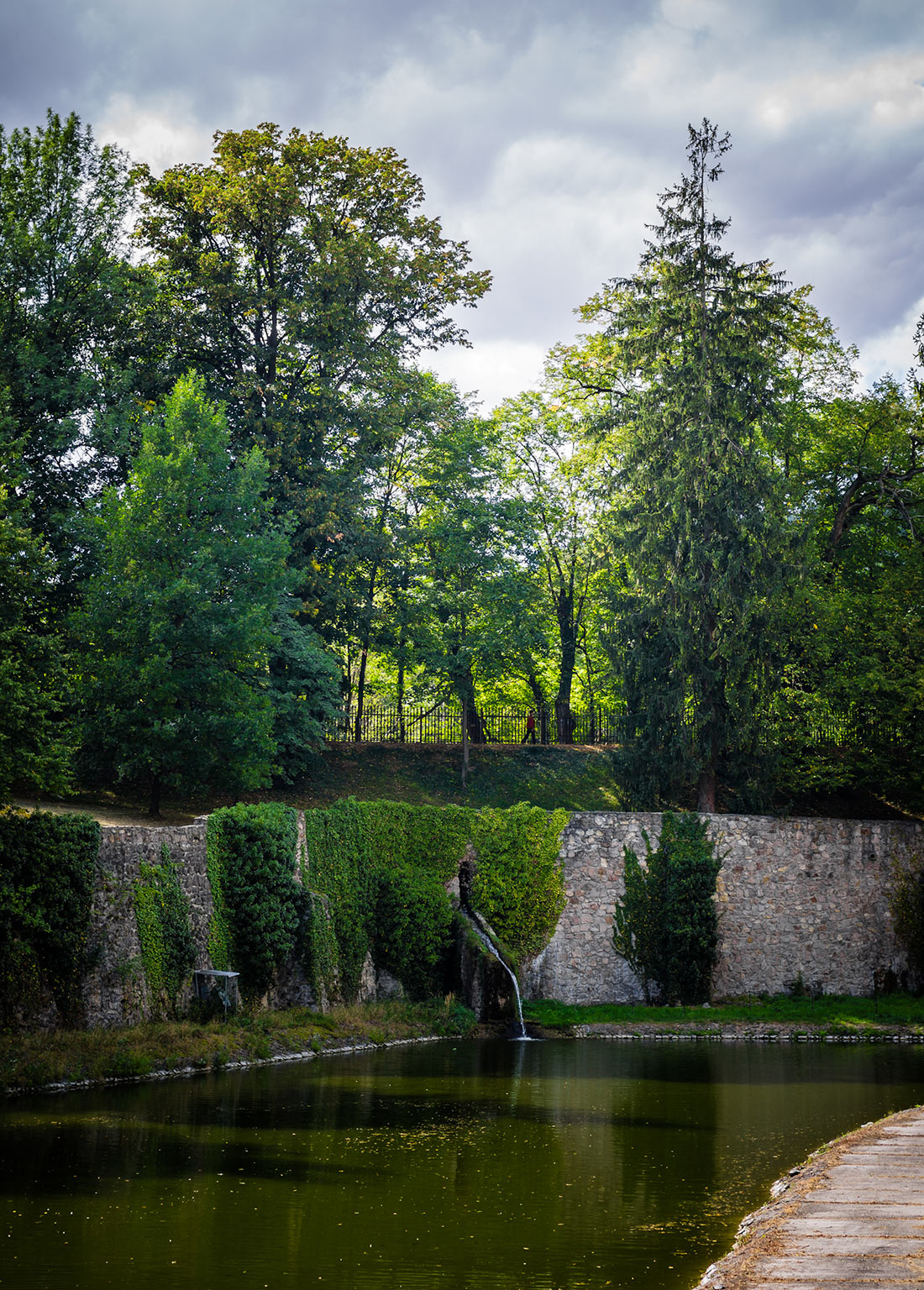
Photo: Kurt Bauschardt/flickr (https://creativecommons.org/licenses/by-sa/2.0/)

Photo: Stanislav Ochotnicky/flickr (https://creativecommons.org/licenses/by-sa/2.0/)
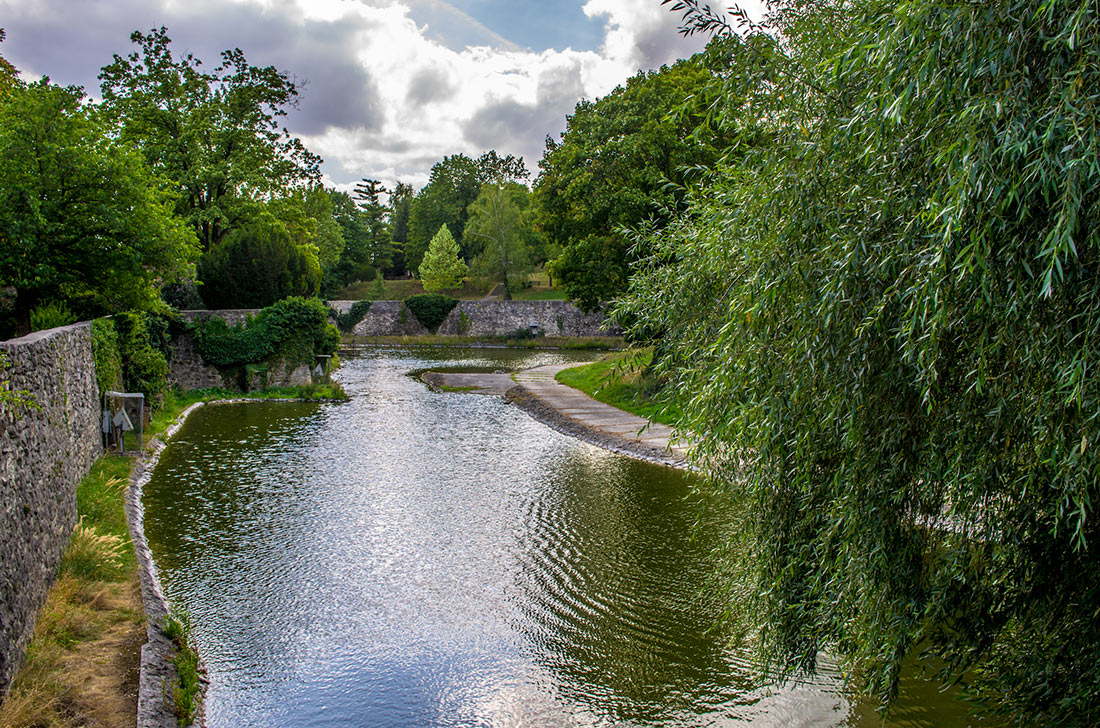
Photo: Kurt Bauschardt/flickr (https://creativecommons.org/licenses/by-sa/2.0/)
Under the castle building, at a depth of 26 meters, there is a limestone cave with two lakes in it.

Photo: Kurt Bauschardt/flickr (https://creativecommons.org/licenses/by-sa/2.0/)

Photo: Kurt Bauschardt/flickr (https://creativecommons.org/licenses/by-sa/2.0/)

Photo: Kurt Bauschardt/flickr (https://creativecommons.org/licenses/by-sa/2.0/)

Photo: Kurt Bauschardt/flickr (https://creativecommons.org/licenses/by-sa/2.0/)

Photo: Kurt Bauschardt/flickr (https://creativecommons.org/licenses/by-sa/2.0/)
During almost the whole year, various festivals are held in the castle. In February, Valentine’s Day is celebrated here, on Easter guests welcome spring, and since late April till early May, the International Festival of Spirits and Ghosts is held.
The castle is also a popular location for producing fairy tale films.

Photo: Kurt Bauschardt/flickr (https://creativecommons.org/licenses/by-sa/2.0/)

Photo: Kurt Bauschardt/flickr (https://creativecommons.org/licenses/by-sa/2.0/)

Photo: Kurt Bauschardt/flickr (https://creativecommons.org/licenses/by-sa/2.0/)

Photo: Kurt Bauschardt/flickr (https://creativecommons.org/licenses/by-sa/2.0/)
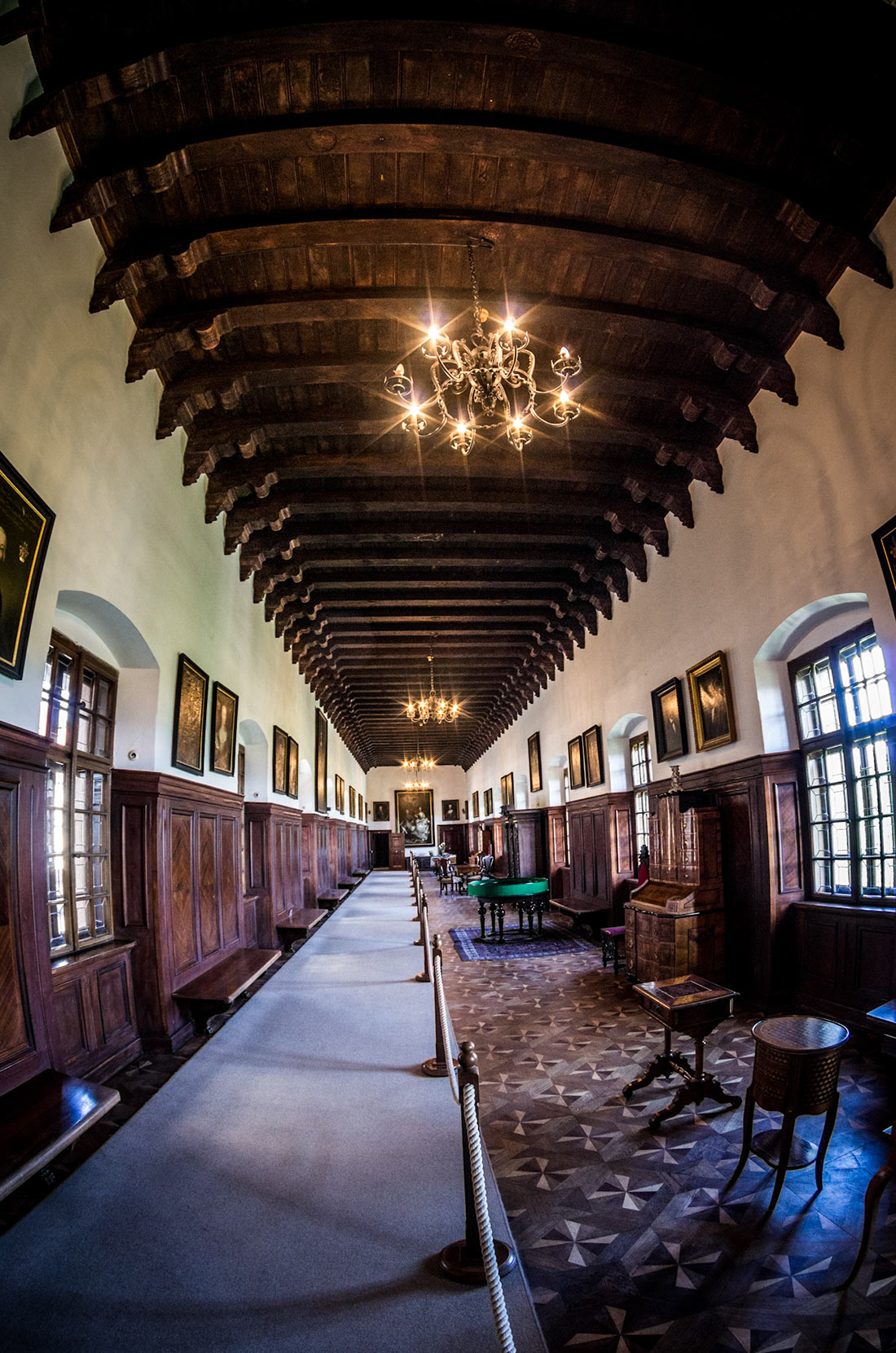
Photo: Kurt Bauschardt/flickr (https://creativecommons.org/licenses/by-sa/2.0/)

Photo: Kurt Bauschardt/flickr (https://creativecommons.org/licenses/by-sa/2.0/)

Photo: Kurt Bauschardt/flickr (https://creativecommons.org/licenses/by-sa/2.0/)

Photo: Kurt Bauschardt/flickr (https://creativecommons.org/licenses/by-sa/2.0/)

Photo: Kurt Bauschardt/flickr (https://creativecommons.org/licenses/by-sa/2.0/)

Photo: Kurt Bauschardt/flickr (https://creativecommons.org/licenses/by-sa/2.0/)

Photo: Kurt Bauschardt/flickr (https://creativecommons.org/licenses/by-sa/2.0/)

Photo: Kurt Bauschardt/flickr (https://creativecommons.org/licenses/by-sa/2.0/)

Photo: Dushan Hanuska/flickr (https://creativecommons.org/licenses/by-sa/2.0/)


